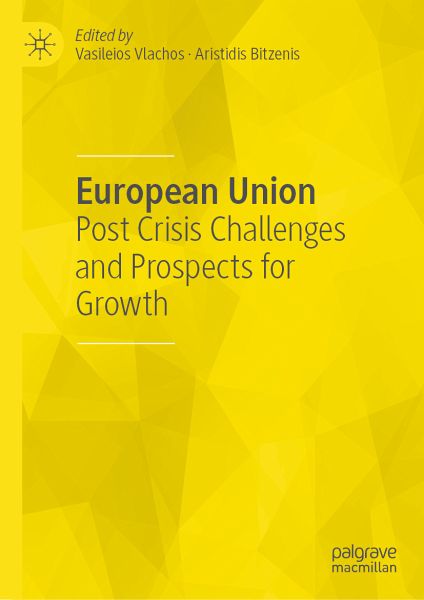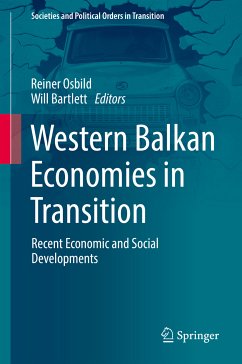
European Union (eBook, PDF)
Post Crisis Challenges and Prospects for Growth
Redaktion: Vlachos, Vasileios; Bitzenis, Aristidis
Versandkostenfrei!
Sofort per Download lieferbar
72,95 €
inkl. MwSt.
Weitere Ausgaben:

PAYBACK Punkte
36 °P sammeln!
This book discusses the unprecedented impact of the financial and economic crisis on government finances and economic performance across Europe, which has raised skepticism on the ability of the current course of integration to promote prosperity. Correspondingly, the European Union is about to contract for the first time in its history. This timely book covers the economic issues that challenge the future of integration in Europe.The chapters are authored by international experts and examine current and emerging challenges and trends for the European Union: economic convergence, monetary poli...
This book discusses the unprecedented impact of the financial and economic crisis on government finances and economic performance across Europe, which has raised skepticism on the ability of the current course of integration to promote prosperity. Correspondingly, the European Union is about to contract for the first time in its history. This timely book covers the economic issues that challenge the future of integration in Europe.
The chapters are authored by international experts and examine current and emerging challenges and trends for the European Union: economic convergence, monetary policy, competition law, transport policy, the informal sector, employment, recovery and enlargement. Four chapters focus on Greece, which has been the greatest challenge faced by European institutions in the context of the sovereign debt crisis, and one chapter discusses the possible costs of Brexit. The reader will benefit from understanding the key economic challenges, which, if effectively addressed, will lead to deepening the union, or in contrast to a multi-speed Europe.
The chapters are authored by international experts and examine current and emerging challenges and trends for the European Union: economic convergence, monetary policy, competition law, transport policy, the informal sector, employment, recovery and enlargement. Four chapters focus on Greece, which has been the greatest challenge faced by European institutions in the context of the sovereign debt crisis, and one chapter discusses the possible costs of Brexit. The reader will benefit from understanding the key economic challenges, which, if effectively addressed, will lead to deepening the union, or in contrast to a multi-speed Europe.
Dieser Download kann aus rechtlichen Gründen nur mit Rechnungsadresse in A, B, BG, CY, CZ, D, DK, EW, E, FIN, F, GR, HR, H, IRL, I, LT, L, LR, M, NL, PL, P, R, S, SLO, SK ausgeliefert werden.












